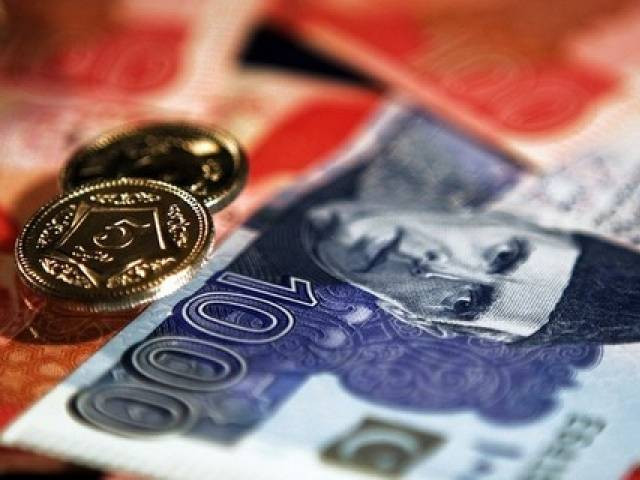Power devolution for metropolitan economies
Hope remains high for a pluralistic and harmonious political structure in Pakistan

Hope remains high for a pluralistic and harmonious political structure in Pakistan. PHOTO SOURCE: BLOOMBERG
Brookings Institute, a US-based think tank, has identified 300 largest metropolitan economies of the world, which are contributing 47% to its output with 20% of global population.
In this research report, 96 of such economies are located in developing countries, whereas none from Pakistan met the criteria. China has an overwhelming presence with the inclusion of 48 of its metropolitan economies. With per capita GDP of $1,110, Kolkata, from India, is last on the metropolitan economy list.
China's economy 'integrated' with global economy
Let us elaborate a metropolitan economy. It is an economic region comprising a metropolitan area with one or more cities and their surrounding areas, which are linked by economic and commuting ties.
The Indian government defines metropolitan city as one with a population of one million or above. According to the 2011 census, India has 46 metropolitan cities, of which six are included in the Brookings’ list.
Since census has not been held in Pakistan for 18 years, hence population data from Demographia is used for determining metropolitan cities in the country. In accordance with its 2016 data, there are 10 such metropolitan areas in Pakistan with a population of one million and above.
This debate on metropolitan economies becomes crucial in the context of CPEC. Progress is steady on the connectivity and other infrastructure fronts. For inducing further value from this initiative, metropolitan economies need to lead from the front.
Pakistan has completed the process of installing the third-tier local governments in all the provinces. However, the democratic mindset of the ruling elite is limited to gaining power through elections and then concentrating power in the hands of an oligarch group.
Devolving power to the lower echelons is anathema to them. Even the so-called devolution exercise undertaken by the Musharraf government remains without teeth in the absence of constitutionally guaranteed fiscal devolution to the local governments.
Monopolised fiefdoms
Legally, Pakistan does have a three-tier governmental structure, but effectively it is marred by monopolised fiefdoms at federal and provincial levels.
It is evident from history that whenever given a chance, Pakistanis have supported democratic dispensations. It is indeed a good omen that democratic structure is consolidating its roots.
However, next struggle for the Pakistani citizenry will be the devolution of power to the grass roots level. This will be achieved through the present democratic edifice. It is the same political elite that has firmed up federalism through consensus on the 18th Amendment to the Constitution.
Beauty of democracy remains in its unleashing of power dynamics with unintended consequences. This trial-based approach eventually engrains moderation in the polity and stimulates broader power-sharing arrangements.
For the journey ahead, we need to understand that successful metropolitan economies cannot just be worked out in centralised structures. All such thriving precedents owe their allegiance to a dynamic city leadership.
The economic transformation of Pakistan through IT
Modern metropolitan economies are increasingly governed out of the ambit of federal and provincial governments. It should not be interpreted as a secessionist trend in large metropolitans.
However, complexity of governance and economic competition are pushing metropolitans for more on-the-ground serving approach. Obviously, there is no one fit-for-all formula for metropolitan governance, but basic trend is moving towards strengthening of local governments in the metropolitans.
Deprived of autonomy
Pakistan cannot buck the trend. We understand insecurity of the present ruling elite in sharing power with mayors at major urban centres. This mindset is evident from the provincial governments’ approach to deprive the metropolitans of fiscal and administrative autonomy in running their own affairs.
Pakistan is the seventh largest country with over 200-million population. It cannot optimises its economic potential with an archaic political path. Let us take a cue from the devolved political structures of Shanghai, New York, London, Istanbul, Sao Paulo, Johannesburg and such others, which have made them great economic centres of the world.
The pathway of prosperity is marked by political choices. Hope remains high for the evolution of Pakistani political structure towards a pluralistic and harmonious power arrangement. Our metropolitan areas will be leading this growth journey.
The writer is a director in the Policy Research Institute of Market Economy
Published in The Express Tribune, January 2nd, 2017.
Like Business on Facebook, follow @TribuneBiz on Twitter to stay informed and join in the conversation.



















COMMENTS
Comments are moderated and generally will be posted if they are on-topic and not abusive.
For more information, please see our Comments FAQ